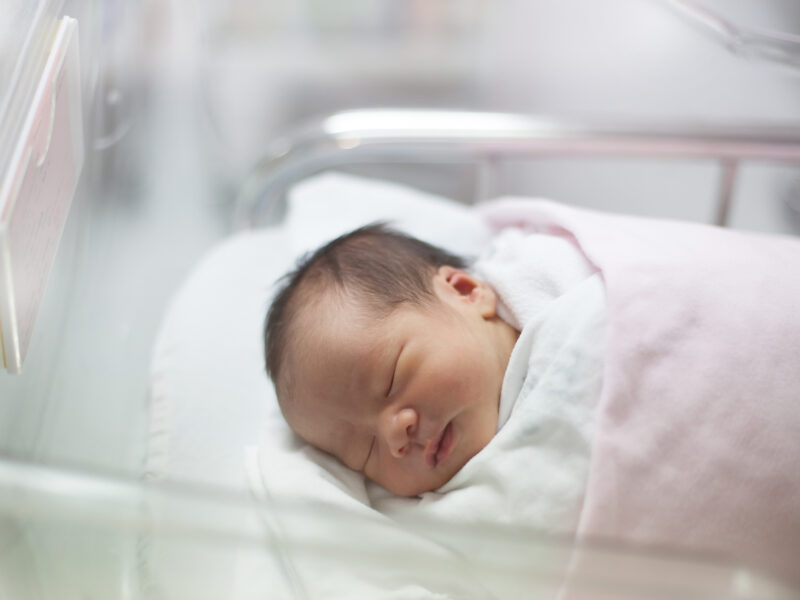How the Antimicrobial Protein RNase 7 Helps Prevent Urinary Tract Infections
How the Antimicrobial Protein RNase 7 Helps Prevent Urinary Tract Infections https://pediatricsnationwide.org/wp-content/uploads/2021/03/AdobeStock_58708006-1-1024x683.jpg 1024 683 Mary Bates, PhD Mary Bates, PhD https://secure.gravatar.com/avatar/c6233ca2b7754ab7c4c820e14eb518c8?s=96&d=mm&r=g- January 31, 2022
- Mary Bates, PhD

Researchers identify genetic variation associated with severe and recurrent UTIs.
A new study adds to the growing body of evidence suggesting the antimicrobial protein RNase 7 plays an important role in preventing urinary tract infections (UTIs). The findings, published in The Journal of Clinical Investigation, suggest genetic variations in the RNase 7 gene may increase UTI susceptibility by suppressing RNase 7’s antibacterial activity. This work may one day help clinicians make more informed decisions regarding UTI treatment or prevention in children at risk for severe or recurrent UTIs.
Previously, researchers from Nationwide Children’s identified an antimicrobial protein named ribonuclease 7 (RNase 7) produced in the kidneys and bladder and secreted into urine. Studies have shown that RNase 7 prevents UTIs; however, it is unknown how genetic variations affect its antimicrobial activity and its mitigation of UTI risk.
In the new study, researchers at Nationwide Children’s, in collaboration with investigators at the University of Tennessee and Indiana University School of Medicine, investigated if a particular genetic variation (single nucleotide polymorphism, SNP) in the RNase 7 gene was a risk factor for UTIs. They performed genotyping for the SNP in two national UTI cohorts, the Randomized Intervention for Children with Vesicoureteral Reflux trial and the Careful Urinary Tract Infection Evaluation study. The researchers compared the genotypes from these cohorts with those of female controls with no UTI.
First, the researchers determined that, compared with controls, girls in both UTI cohorts had an increased prevalence of the RNase 7 SNP.
“We thought that finding this genetic signature in two national cohorts of girls with UTIs potentially indicated it meant something,” says John David Spencer, MD, chief of the Division of Nephrology and Hypertension and one of the authors of the study.
Then, to assess whether the SNP affects the antimicrobial activity of RNase 7, Dr. Spencer and his colleagues used recombinant proteins and in vitro assays to show that the form of the protein more common in children with UTIs killed fewer bacteria than the form of the protein more common in children without UTIs.
Finally, the researchers showed that, in genetically modified human bladder and urothelial cells in which RNase 7 was overexpressed, cells were better protected against bacteria. In addition, the RNase 7 SNP more common in children with UTIs did not protect the cells as well as the form of the protein more common in children without UTIs.
Together with previous findings, this study provides evidence that RNase 7 has an important role in preventing UTI.
“It’s pretty powerful that we were able to identify this genetic signature in two large, national cohorts of children,” says Dr. Spencer, who is also an associate professor of pediatrics at The Ohio State University College of Medicine. “But I think the next steps would be to see if that same signature is identified in different racial or ethnic groups. By and large, our population was white Caucasian females.”
Dr. Spencer says these findings may affect future prognostics, perhaps by identifying people who are genetically predisposed towards more severe or recurrent UTIs.
“If we can determine that this genotype leads to more infections, perhaps there are different approached to managing those patients,” he says. “It might be more frequent surveillance, or prophylactic treatment, or maybe we find a way to bolster their immune response so they don’t get the infections.”
Reference:
Pierce KR, Eichler T, Mosquera Vasquez C, Schwaderer AL, Simoni A, Creacy S, Hains DS, Spencer JD. Ribonuclease 7 polymorphism rs1263872 reduces antimicrobial activity and associates with pediatric urinary tract infections. Journal of Clinical Investigation. 2021 Nov 15;131(22):e149807. doi: 10.1172/JCI149807.
Image credit: Adobe Stock
About the author
Mary a freelance science writer and blogger based in Boston. Her favorite topics include biology, psychology, neuroscience, ecology, and animal behavior. She has a BA in Biology-Psychology with a minor in English from Skidmore College in Saratoga Springs, NY, and a PhD from Brown University, where she researched bat echolocation and bullfrog chorusing.
-
Mary Bates, PhDhttps://pediatricsnationwide.org/author/mary-bates-phd/December 27, 2016
-
Mary Bates, PhDhttps://pediatricsnationwide.org/author/mary-bates-phd/
-
Mary Bates, PhDhttps://pediatricsnationwide.org/author/mary-bates-phd/
-
Mary Bates, PhDhttps://pediatricsnationwide.org/author/mary-bates-phd/
- Posted In:
- In Brief
- Research
- Uncategorized






